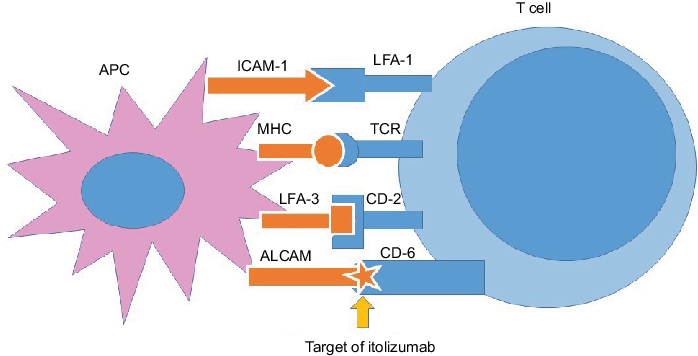Blog Post
Unveiling the Role of CD6 in Immune Function
The immune system’s complexity and precision rely heavily on the diverse molecules expressed on the surface of immune cells. Among these molecules is CD6, a member of the Cluster of Differentiation (CD) family, which plays a significant role in immune regulation and cellular signaling. In this blog post, we will delve into the functions of CD6, its importance in immune responses, and its implications in health and disease.
What is CD6?
CD6 is a type I membrane glycoprotein predominantly expressed on the surface of T cells, particularly mature T cells, and to a lesser extent on B cells and natural killer (NK) cells. It belongs to the scavenger receptor cysteine-rich (SRCR) superfamily and is involved in various cellular processes, including cell adhesion, activation, and differentiation.
Functions of CD6
- T Cell Activation and Signaling: CD6 plays a crucial role in T cell activation and signaling. It acts as a co-stimulatory molecule, enhancing T cell receptor (TCR) signaling when engaged. CD6 interaction with its ligand, ALCAM (activated leukocyte cell adhesion molecule), facilitates the formation of the immunological synapse, a crucial structure for effective T cell activation and immune response.
- Cell Adhesion: CD6 is involved in mediating cell adhesion through its interaction with ALCAM. This interaction is essential for the stable binding of T cells to antigen-presenting cells (APCs) and endothelial cells, promoting efficient immune responses and cell migration to sites of inflammation.
- Regulation of Immune Responses: CD6 plays a dual role in regulating immune responses. While it enhances T cell activation, it also has regulatory functions that help maintain immune homeostasis. CD6 signaling can modulate the production of cytokines and other immune mediators, ensuring a balanced immune response that prevents excessive inflammation and autoimmunity.
- Immune Synapse Formation: The immune synapse is a specialized junction between T cells and APCs, crucial for effective immune signaling. CD6 contributes to the stabilization and organization of this synapse, facilitating efficient antigen recognition and T cell activation. This role is vital for the proper functioning of adaptive immunity.
Clinical Implications of CD6
- Autoimmune Diseases: Dysregulation of CD6 expression or function has been implicated in various autoimmune diseases. For instance, increased expression of CD6 has been observed in conditions like multiple sclerosis and rheumatoid arthritis. Therapeutic strategies targeting CD6, such as monoclonal antibodies, are being explored to modulate its activity and alleviate autoimmune pathology.
- Cancer: CD6 is also involved in cancer biology, particularly in hematologic malignancies. Abnormal expression of CD6 has been noted in certain types of T cell lymphomas and leukemias. CD6 can serve as a diagnostic marker and a potential therapeutic target. Blocking CD6 signaling in these cancers might help control tumor growth and improve patient outcomes.
- Transplantation: In the context of organ transplantation, CD6 is being studied for its role in graft rejection and tolerance. Modulating CD6 activity could enhance immune tolerance to transplanted organs, reducing the risk of rejection and improving graft survival.
Research and Future Directions
Ongoing research is focused on further elucidating the molecular mechanisms of CD6 signaling and its interactions with other immune receptors. Advances in this field could lead to the development of new therapeutic approaches for autoimmune diseases, cancer, and transplant rejection. Additionally, understanding the role of CD6 in different immune cell subsets could provide deeper insights into its diverse functions and regulatory mechanisms.
Conclusion
CD6 is a critical molecule in the immune system, playing essential roles in T cell activation, cell adhesion, and immune regulation. Its involvement in autoimmune diseases, cancer, and transplantation highlights its clinical significance and potential as a therapeutic target. Continued research on CD6 holds promise for novel interventions that could enhance immune regulation and improve treatment outcomes in various immune-related conditions.


